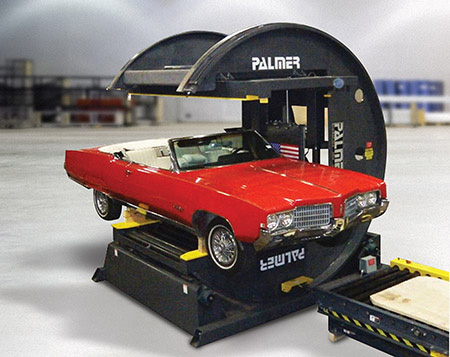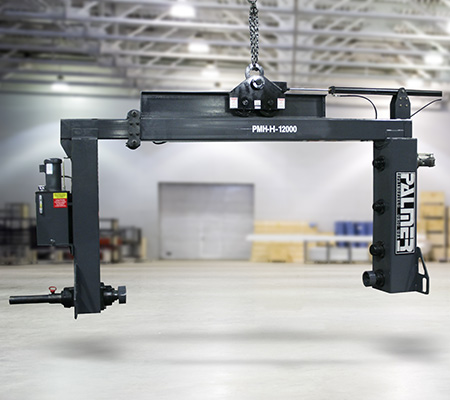Foundry & industrial processing Machinery EQUIPMENT & SYSTEMS
U.S. & Canada Call 1.800.457.5456
Damn Sand Gets In Everything
Home Articles Damn Sand Gets In Everything

Simple Solutions That Work!™, Volume 2, April 2015
Written - Jack Palmer
Jack Palmer
President
Palmer Manufacturing & Supply, Inc.
Article Takeaways:
Damn Sand Gets In Everything Jack Palmer 4 Back when I started in production and maintenance in the foundry industry in the mid 60’s things were quite different. Green sand ruled and no bake was in its infan-cy. Housekeeping wasn’t a big consideration. If you could climb over stuff to get where you wanted to go, that was good enough.
If you could see 40 – 50 ft, that was fine. This was a time without OSHA, EPA, computers or cell phones for that matter. It is a time that now, is pretty hard to imagine.
Green sand is inherently "dirty." Consequently, the com-bination of the two would lead to mechanical failures due to equipment being covered or buried in sand. Preven-tative maintenance wasn’t yet a thing and as a result, "breakdown maintenance" was pretty much the norm.
Bearings were greased until grease came out somewhere and the foundry maintenance man’s go-to tool was a 5 lb hammer. "Just get it running and we'll fix it later" was a common phrase. Of course "later" never came because lots of other cobbled together equipment was breaking down. Some places didn’t know if there was a real floor under the sand!
Maintenance is amazingly different now. Computer scheduled preventative maintenance is the standard. Schedules for lubrication, adjustments, and component replacement are carefully traced and monitored using a multitude of sophisticated programs. Today’s metal casting facility managers understand the importance of uptime and correctly maintained equipment for safety as well as a profitability standpoint.
Properly designed foundry sand processing equipment doesn’t have places to trap sand or is thoroughly protected.
- Valving is remote
- Hydraulic units are leak free and placed where they can be easily maintained
- Compressed air is thoroughly dried and lubricated to the correct level where necessary
I am sure any foundry person is familiar with "blowing down" an air line before using it to get water and scale out before reattaching it to an expensive precision air tool! Managers and engineers realize compressed air is a very expensive energy source, therefore air leaks are fixed quickly and some functions are replaced with electrome-chanical devices since they are not only less expensive to operate, but they also need less maintenance. These devices are also easier to monitor operation and performance.
Properly designed equipment has very heavy sections to keep vibration and subsequent component failures to a minimum. Steel is relatively inexpensive as a percentage of a machines total cost and should be used generously to reduce failures caused by excessive vibration. Vibration is the foundry's way of breaking down equipment to let sand in!
Obviously anybody can and will make any piece of equipment thinner to save cost and have a lower selling price, but these are false savings. You save the money once, but pay for it every day. Things are cheap for a reason.
When we start training new engineers, we let them design something as they have been trained and then as the question "if you pour glue and sand all over this mechanism, will it still work day after day?"
They usually look at you like you have 3 heads, but we say this for a reason. Foundry and mining are incredibly hard on machinery and require a little different think-ing than is generally taught in traditional engineering. Equipment can be too thin, but it can't be too thick.
Next time you evaluate a new piece of equipment for your foundry, see if you think it can pass the test of having glue and sand poured over it and still perform. Look for places that sand can penetrate and destroy components. See if the manufacturer looks like they understand the problems sand can cause and have enclosures to keep sand out of components. And, make sure it can handle the constant vibration and demanding environment that is unique to the foundry.
Things to check:
- Look for exposed bearings
- Make sure hydraulics are either under structural components or away from falling sand
- Never have your machine or critical moving components near the floor.


Copyright © 2024 Palmer Manufacturing & Supply, Inc. | Terms and Conditions | Privacy Policy
Web published by Marketing Options, LLC.




